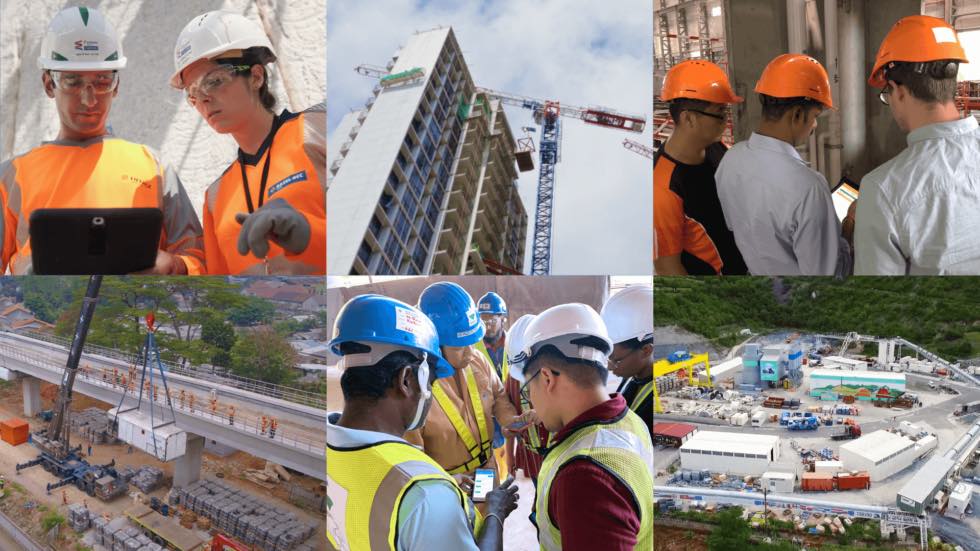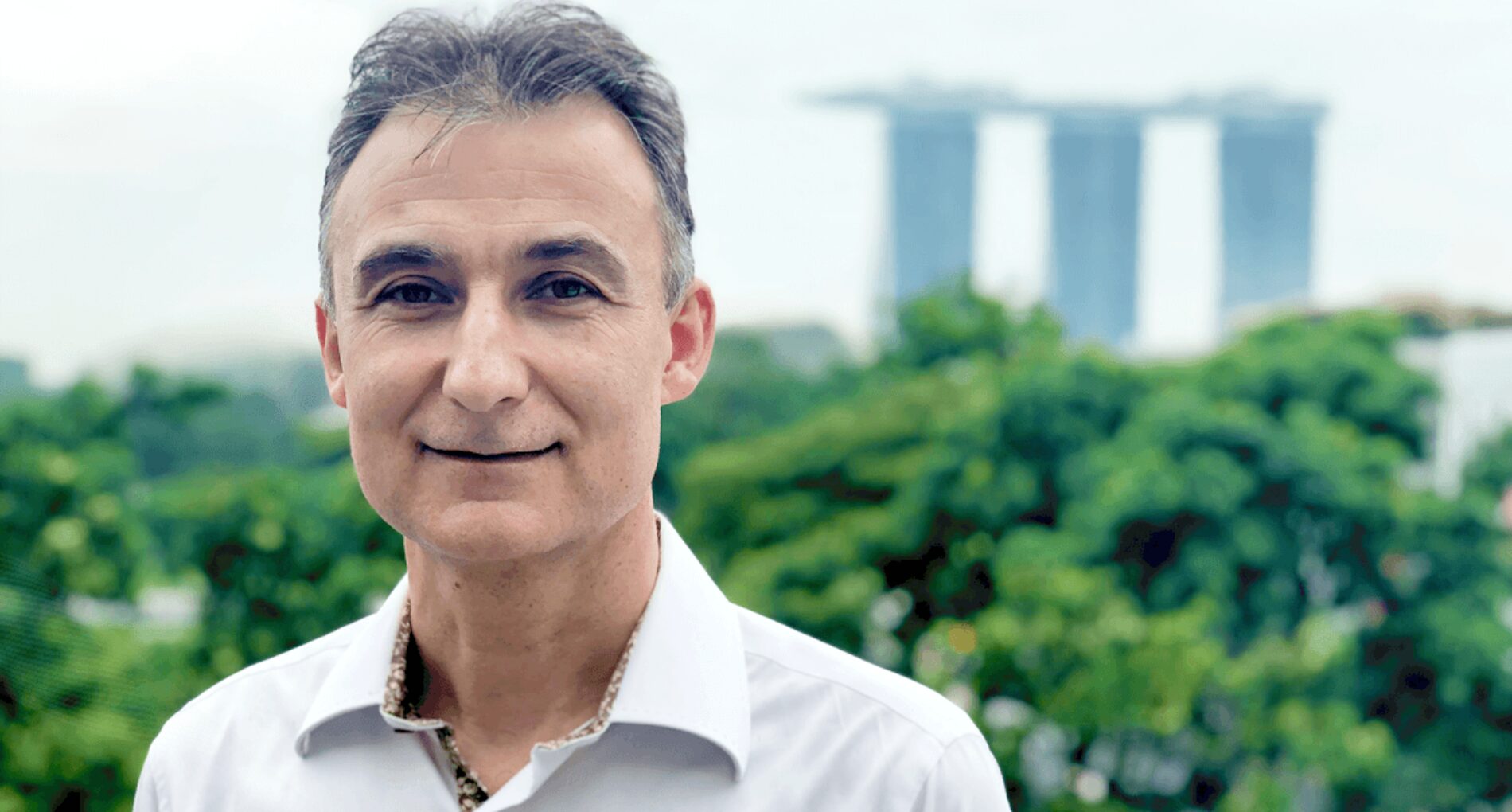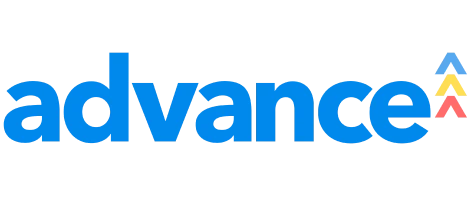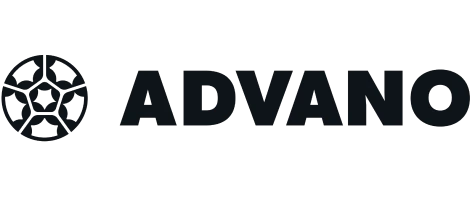Denis Branthonne is the founder and CEO of Novade, a fast-growing company delivering enterprise apps for building and construction operations. Novade operates across APAC and EMEA, and also serves some of the largest companies in the industry. Though he hails from France and studied in the United States, he has been active in Asia for two decades. This is a conversation on how he realised his vision of a fully integrated enterprise platform for the building and construction industry in Novade. Read how Novade won some of its best contracts in Southeast Asia and Europe. (Paul’s questions to Denis are in italics.)
Denis: My career started out in the shipbuilding and manufacturing industry. I started in the field, optimising design and industrialisation processes. In my late twenties, I joined a startup that developed mobile mapping—like Google Earth—lofty and was way ahead of its time. It was not a successful venture, I discovered the taste of failure and painfully understood the meaning of the expression “cash is king”.
In the early 2000s, I moved into Autodesk sales in Asia. At the time, sales representatives were typically extroverted and charismatic individuals. My style was quite different—an engineer leveraging analytics to deliver results. I had to adapt, move up the ladder and eventually ran the entire organisation.
A PARTNERSHIP THAT WORKS DESPITE THE DIFFERENCES
After 12 years at Autodesk, working with clients in the building and construction industry, I was convinced the industry would eventually catch up with manufacturing and adopt digital solutions to manage operations.
This was when I met Eugene. He was the most successful provider of IT solutions for the industry in the region. Through conversations, it was clear Eugene and I shared the same vision . He wanted to do more than just resell software, and so we started Novade.
I think part of the richness and success of our partnership comes from the fact that we are both very experienced, know the industry well, but bring different perspectives. I have a track record in managing large scale global operations, and Eugene is a born entrepreneur.
Paul Santos: You never know until the tough times. If there is true mutual trust and respect, good partners will figure something out. Once one or both sides start to lose that, then the bond could chip away and break. But from the way he described this relationship with Eugene, the way they resolved problems, you could tell there was and is plenty of mutual trust and respect.
Denis: Yes, I think the key is that our backgrounds and characters are complementary, and we respect each other. Eugene knows things that I don’t, and vice versa. Working together for years has created a very strong partnership.
BUILDING NOVADE PIECE BY PIECE
Paul: I remember that you said your first version of this solution was an enterprise-grade solution that you were trying to sell to clients?
We talked about finding your wedge in, and how, if you do that, you can jumpstart a whole chain of events. I think when you think about process design, you figure out the right process first before you automate; finding where you fit in that process with your wedge was another principle.
Instead of this huge solution, you chop it into modules and you’ve found different wedges for different guys.
Denis: You’re absolutely right. We had to take a small, bottom-up, field-driven approach. Now that we are here, it looks pretty much like what we had envisioned for the company six years ago.
Not to say the “big idea” isn’t important. We envisioned a platform with different modules and data, and that guided us, resulting in a product that is well-architected and thought through.
Paul: That’s the nuance. A lot of software companies will go the opposite extreme and be too narrow with no vision. They have no idea how things are going to be put together; they just hustle, hustle, hustle and try to keep it together. The key is to start small with a plan for the future.
FINDING LEVERAGE IN SINGAPORE
Eugene told me that Singapore, with its Smart Nation concept, was very enthusiastic about getting data on construction sites. Now you’ve worked with seven out of the top 10 real estate developers in Singapore. And because Singapore is a world-class city, you ended up working with eight out of the top 20 construction companies in the world.
Denis: I think one of the reasons for our success is that we designed a strategy that fits the local context. There are essentially three attributes we leverage as a Singapore startup.
First, Singapore is a great place to get started and test solutions. Within 30 to 45 minutes, we can get to hundreds of construction sites and work in the field with clients. In most countries, the density of construction sites is much lower.
Secondly, we can easily access global clients here. Singapore is an open market where the largest companies in the world come and set up shop. In Japan, you work with Japanese firms; in the U.S., you work mostly with Americans firms; in China, you work with Chinese firms. In Singapore, you work with everybody. This country opens doors and gives you a window of access to these big companies at scale.
Finally, we leverage the country’s brand. Singapore has world-class infrastructure. When we engage with clients overseas and mention references from Singapore, it usually triggers interest and curiosity.
There are also challenges related to Singapore. The most significant is the lack of critical mass. Singapore makes up only 0.2% of the global construction market. It’s easy to get started, but the real challenge is to get to global scale.
HO CHI MINH CITY, VIETNAM, 9 APRIL 2024 – CNV, founded in 2020 by Nguyen Tuan Phu and Do Dang Khoa, is the leading cloud-based business and marketing solutions provider dedicated to offering digital transformation SaaS products and marketing growth services to assist MSMEs, SMEs, and enterprises in Vietnam achieve sustainable growth via marketing, loyalty and […]
Read moreIn the previous articles of the Culture mini-series, we looked at how values and strategy impact an orgnisation’s culture. In this article, we explore organisational structure as a powerful driver of culture. When our portfolio company Lhoopa, a digital real estate platform that enables the large-scale deployment of affordable homes, raised their pre-B bridge round last […]
Read moreSINGAPORE, 16 January 2024 – Customer data platform (CDP) Meiro has successfully secured US$3 million in an over-subscribed pre-Series A round, led by Southeast Asian VC firm Wavemaker Partners, with participation from angel investors at Singapore-based Angel Central. This marks Meiro’s first strategic funding round following five years of robust self-funded organic growth and profitability. The […]
Read moreESTABLISHING A FOOTHOLD
Paul: How did you eventually build up to get to that point where, again, from that microscopic market, you’re slugging it out with the big boys and winning large enterprise contracts overseas?
Denis: We accepted that in Singapore, it would be very tough for us to beat competitors from China and the U.S. on volume. But where we can win is the enterprise space.
Take the top 30 companies in the industry – more than half of them come from four countries: Japan, South Korea, France, and China. We have a value proposition that works for these guys and have access to them. We planned very early on to expand internationally through these connections.
We started operations in 2014, and by 2015 we ventured overseas and signed our first contract in Malaysia. By 2016, we had our first contracts in Europe. Startups usually build their business in their own country before going overseas, but we knew we shouldn’t do that.
Why? It takes time to develop markets abroad. When you develop a product and only tailor it to one country, you will be too myopic and fail when you try to bring it elsewhere. So, it was important for us to capture feedback globally very early on.
Today, that approach gives us an advantage: we now operate in 20 countries and we understand what is similar globally versus what needs to be configured and customised locally.
And in some of these markets we are able to secure multimillion-dollar contracts. These contracts are not signed overnight. It typically takes years for an enterprise client to develop trust in us. We usually work on one project, then two, then three, proving that we can deliver again and again and again.
“Beyond personal expertise, I think personal relationships and trust make a big difference.“
The human aspect is also critical. For instance, we generate a significant amount of business in Europe and this would not be possible without local leadership. Two and a half years ago, we appointed Bruno Suard as General Manager for EMEA. Like Eugene and I, he is a very experienced individual who has successfully created both a tech startup and a pre-fab company in the construction sector – a perfect match for what we do.
Bringing onboard someone so experienced was not easy. We put in place a three-year plan with clear ambitious targets backed with an attractive performance-based package. It worked very well. Here again, beyond personal expertise, I think personal relationships and trust make a big difference.
BUILDING TRUST IN THE ORGANISATION
From my experience, trust is hard but necessary in organisations. In my previous role, running operations in Asia and all emerging markets, I had to manage hundreds of people around the world. The physical distance and variety of languages and cultures made it challenging. Most of my team were overseas and I didn’t see them every day.
Paul: You need authenticity, predictability, and reliability. They’ve earned trust through their actions, words, thoughts, and results.
The last part is alignment. If people are happy to leave something on the table for everybody else because they believe you will succeed better together than not, that creates alignment.
Trust happens if, over time, you can look at how that person behaves and predict how he’s going to react.
Denis: Yes. Reporting metrics can tell you whether your teams are performing. Still, if you don’t develop a predictable organisation, you lose the element of trust, and you can’t operate properly in the long term.
Paul: When we did a study of our best-performing companies, we found three main attributes. First is, over time, they gain a deeper and nuanced understanding of the customer and consumer, and that forms the basis for any strategy, product, or business model enhancement. It’s that attention to the customer and the consumer.
The second one is the ability to deliver on the milestones. It sounds obvious because if you deliver on the milestones, you’re probably doing well. But think. If you’ve set it, and because you’ve said it and you hit it, you show that A, you understand your business and B, are committed to achieving results even if obstacles come your way.
The third one is paying attention to how they build the organisation. What kind of profile do I bring on, how do I scale my team now?
Now could you share your views on funding and the decision to bring investors on board?
DEALING WITH VCs
In the beginning, Eugene and I decided not to get external funding. In my first startup, I had a horrible experience with investors. I promised myself that if I ever became an entrepreneur again, I had to make sure that I would be on equal standing with the investors. Eugene is also a self-made man and has developed all his businesses without external funding.
Beyond personal experience, the factor which caused us to hold off on taking investor money was more strategic. We knew there was a market but had no idea how long it would take to emerge. We felt there was no point trying to raise funds if we couldn’t commit to delivering results. We weren’t even sure if it would be a business for VCs.
This all changed when we saw the market picking up along with demand. We didn’t have enough resources to fund all this, so getting external funding became a logical decision.
When we started engaging with local VCs, stating we wanted to create a global enterprise leader for construction from Singapore, to be honest, we were not taken very seriously.
Eventually, we raised a Series A with Wavemaker. I think a common vision of what defines B2B success and personal connections made the difference.

LOOKING TOWARDS THE FUTURE
Paul: I’m very happy with the consortium that we’ve been able to put together for Series B. And what are you looking forward to now?
Expectations grow with success. Today we are the market leader in Southeast Asia, and we have the ambition to become a key player globally in specific market segments.
In the U.S., a company like Procore has shown the way. Within a few years, they have grown into a large organisation, riding fast-growing demand for digital project management.
The U.S. is typically ahead of Europe and Asia when it comes to digitisation, I believe similar trends are going to impact this part of the world in the coming decade. We believe we are ideally positioned to capture that demand.
NEW OPPORTUNITIES AMID COVID-19
COVID-19 is challenging for us in the short-term – many of our clients are impacted financially by the crisis. However, in the mid-term, it will accelerate the digital transformation of the building and construction industry. COVID-19 is acting as a catalyst: our clients have no choice but to change and adapt quickly out of necessity. The push for contactless operations and the need to manage them remotely are big drivers right now.
The crisis is also impacting the way we operate. Previously, we have relied on face-to-face engagements for marketing, sales, consulting or training activities. The sector is traditional and clients like to “see you” on-site.
But in the last few months, we have modified the way we work. In fact, we are now signing contracts with clients without meeting them. We are also able to configure and deploy the platform on large projects completely remotely.
Paul: I also wanted to ask—do you have any single biggest factor for how you built your business so sustainably? Because what I understood was that your business is very capital-efficient.
Denis: It boils down to efficiency. We don’t waste much energy or time. We listen to our clients, and will only develop something that addresses their pain points and has their support.
We believe that innovation comes from a distinctive understanding of the market and connecting the dots with technology. We have mechanisms to get feedback from clients constantly and that’s how we continuously improve our solutions. We only venture into markets or products if clients’ demands back it. That creates a very efficient organisation. We value our resources and use them on what matters.
Maybe it’s not flamboyant, but it’s efficient. And to tackle this huge, fragmented, and complex market opportunity, efficiency is an absolute must.






